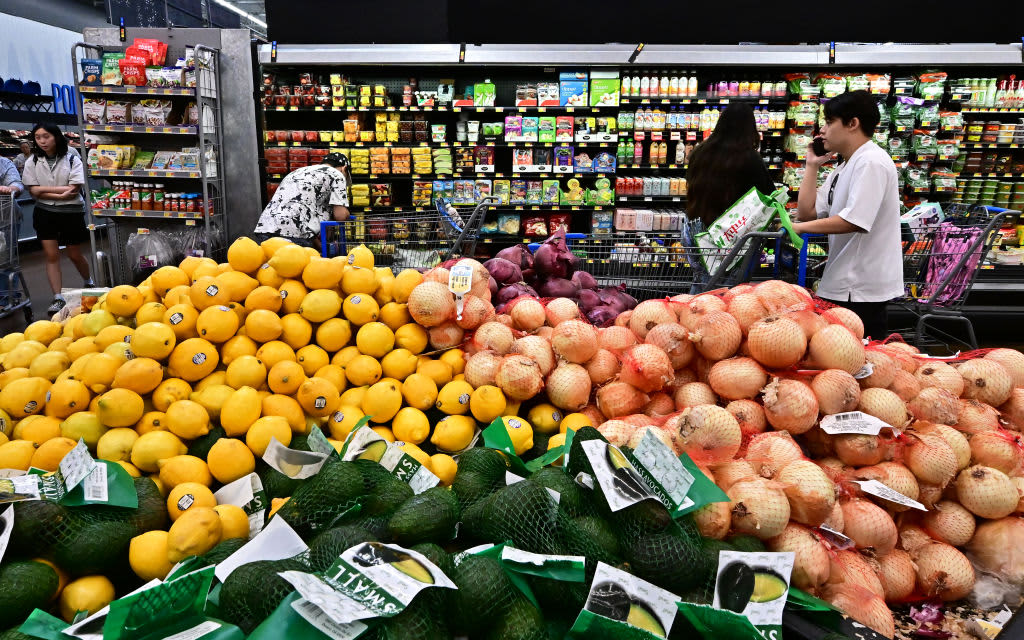DETROIT — Tariffs announced Saturday by the Trump administration of 25% on goods from Canada and Mexico as well as an additional 10% on products from China are expected to have a profound impact on the global automotive industry.
For months, automakers have been taking a “wait-and-see” approach to the Trump administration’s tariff threat. That waiting period is coming to an end and automakers will likely need to implement prior contingency plans to attempt to offset additional costs in the coming weeks and months.
Depending on the details, the tariffs on Mexico could have the greatest impact on the automotive industry, followed by Canada and then China, depending on the automaker.
“Any tariff action must be followed with a renegotiation of the [United States-Mexico-Canada Agreement], and a full review of the corporate trade regime that has devastated the American and global working class,” Shawn Fain, president of the United Auto Workers Union, said in a statement.
General Motors and other major automakers did not immediately respond for comment regarding the tariffs Saturday night. Others such as Ford declined to comment, while Honda issued a broad statement: “North American auto trade is key to the success of Honda globally and we look forward to a swift resolution that provides clarity and stability throughout the region.”
Most major automakers have factories in the U.S. However, they still rely heavily on imports from other countries including Mexico to meet American consumer demand.
Nearly every major automaker operating in the U.S. has at least one plant in Mexico, including the six top-selling automakers, which accounted for more than 70% of U.S. sales in 2024.
A tariff is a tax on imports, or foreign goods, brought into the United States. The companies importing the goods pay the tariffs, and some fear the companies would simply pass any additional costs on to consumers — raising the cost of vehicles and potentially reducing demand.
The formal announcement provides some clarity for companies but could cost automakers, many of which have produced vehicles without tariffs in Canada and Mexico for decades, billions of dollars.
Uncertainty about trade took a toll on GM on Tuesday, when the automaker’s stock had one of its worst days in years even after it beat Wall Street’s expectations for its 2025 guidance and its top- and bottom-line for the fourth quarter.
“Our key take from GM’s 4Q [earnings] result is that while the opportunity for GM is highly compelling, US policy uncertainty must be navigated for the time being,” Barclays analyst Dan Levy said in an investor note Wednesday.

GM did not account for potential tariffs in its guidance, which CFO Paul Jacobson described as a “cautious” approach given no duties on North American goods had been implemented yet.
Both Jacobson and GM CEO Mary Barra said the company has contingency plans for any actions, but that wasn’t enough to appease anxious investors.
“There’s just so much noise,” Jacobson told investors Tuesday, citing the inauguration and California wildfires, among other issues and events. “We’re being cautious until we get a little bit more smooth data from the marketplace just because January was so noisy.”
‘Massive impact’
Tariffs could have a massive effect on the global automotive industry and potentially reduce earnings for companies such as GM, which has significant manufacturing operations across North America.
“Regardless of timing, these blanket tariffs would have a massive impact on the auto industry,” S&P Global Mobility said in a report this week. “Virtually no [automaker] or supplier” operating in North America would be immune, according to the report.
Nearly every major automaker operating in the U.S. has at least one plant in Mexico, including the six top-selling automakers, which accounted for more than 70% of U.S. sales in 2024.
The industry is deeply integrated between the countries, with Mexico importing 49.4% of all auto parts from the U.S. In turn, Mexico exports 86.9% of its auto parts production to the U.S., according to the International Trade Administration.
Wells Fargo estimates that 25% tariffs on Mexico and Canada imports would cost the traditional Detroit automaker billions of dollars a year. The firm estimates the impact of 5%, 10% and 25% tariffs on GM, Ford Motor and Chrysler parent Stellantis would collectively be $13 billion, $25 billion and $56 billion, respectively.
S&P Global Mobility, formerly IHS Markit, estimates a 25% duty on a $25,000 vehicle from Canada or Mexico would add $6,250 to its cost — some if not most of which could be passed on to the consumer.
Automakers most at risk
S&P Mobility reports plants in Canada and Mexico produce roughly 5.3 million vehicles, with about 70% — nearly 4 million — destined for the U.S.
Mexico accounted for a majority of those vehicles, as five automakers — Ford, GM, Stellantis, Toyota Motor and Honda — produced only an estimated 1.3 million light-duty vehicles in 2024 in Canada, largely for the U.S. market, according to a Canadian manufacturing nonprofit research group.
Some of those automakers also heavily rely on production in Mexico, but not all producers would face the same disruptions. On a percentage of sales basis, German automaker Volkswagen is the most exposed to tariff risk in Mexico, followed by Nissan Motor and Stellantis, S&P Global Mobility reports.
“We are working, obviously, on scenarios,” Antonio Filosa, head of Stellantis’ North American operations, said Jan. 10. “But yes, we need to await his decisions and after the decision of Mr. Trump and his administration, we will work accordingly.”
Here are the automakers that are most exposed to tariffs on vehicles imported from Mexico, based on the percentage of their U.S. sales being produced south of the border:
- Volkswagen: 43%
- Nissan: 27%
- Stellantis: 23%
- GM: 22%
- Ford: 15%
- Honda: 13%
- Toyota: 8%
- Hyundai: 8%
